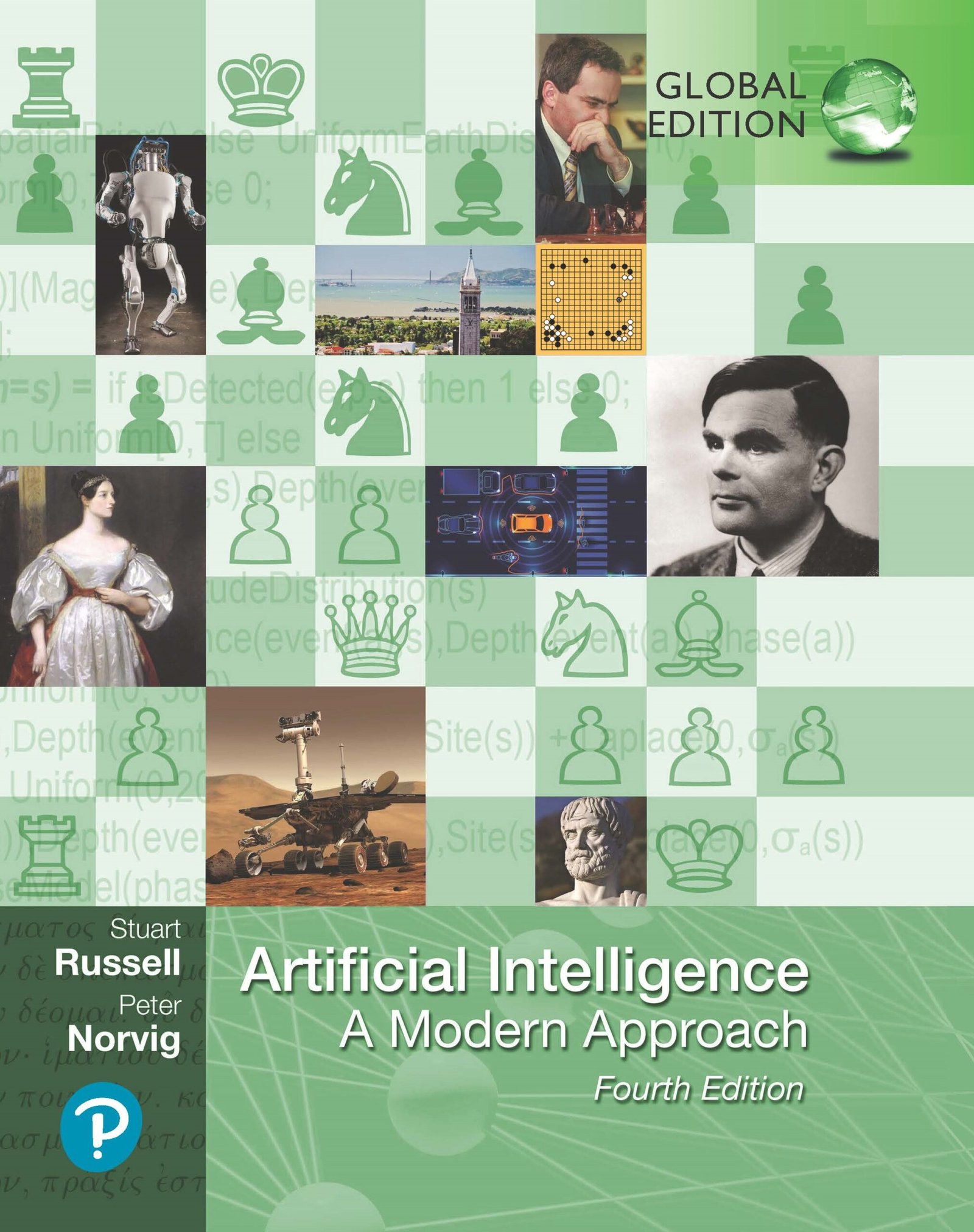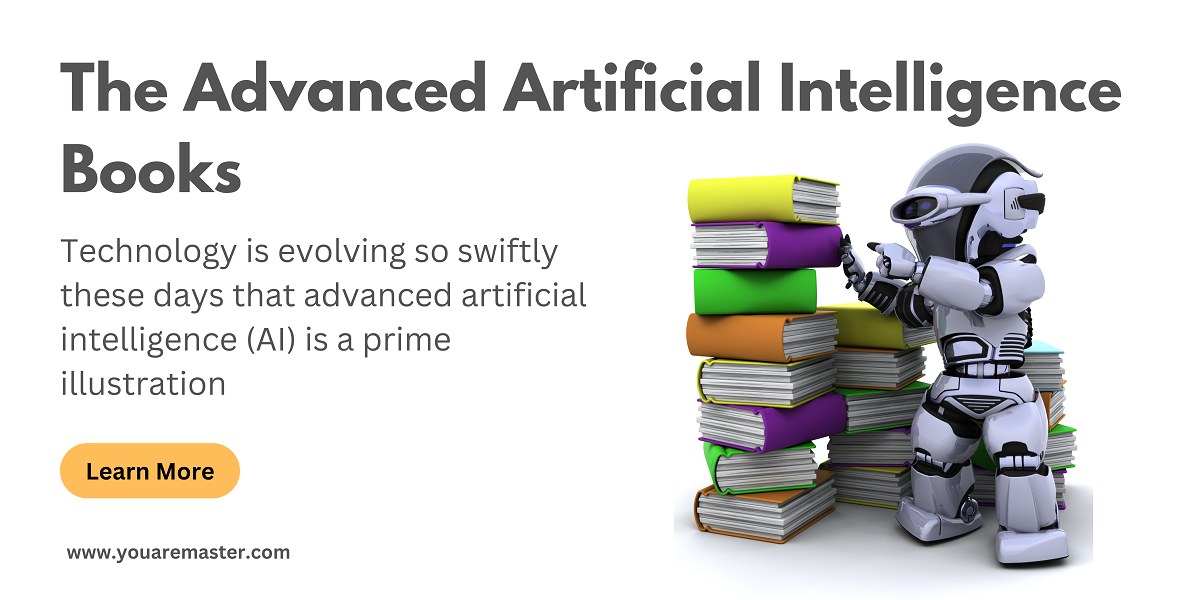The Ultimate Guide to Advanced Artificial Intelligence Books
Introduction
Technology is evolving so swiftly these days that advanced artificial intelligence (AI) is a prime illustration. Its ability to alter things is reshaping entire sectors and pushing the frontier of what is feasible in research and technology. Regardless of your interest—tech, AI, or data science—it’s critical to keep current. This page discusses the most advanced AI books that will provide you with the most knowledge about this rapidly developing field. Read HOW TO USE ARTIFICIAL INTELLIGENCE

Understanding Advanced AI
Definition and Characteristics
Complex machine learning models and algorithms with high processing speeds are included in advanced AI. Basic AI systems repeatedly do the same things; advanced AI systems can learn, adapt, and make decisions with little assistance from humans. Some noteworthy characteristics are:
- Autonomy: Ability to operate independently.
- Adaptability: Learning from new data to improve performance.
- Scalability: Efficiently handling increasing volumes of data and complexity.
Current Trends and Future Prospects
The AI landscape is ever-changing, with significant advancements characterizing the current trends:
- Deep Learning: Utilizing neural networks for image and speech recognition.
- Reinforcement Learning: Algorithms that learn optimal actions through trial and error.
- AI Ethics: Addressing ethical concerns related to AI implementation.
Looking ahead, we expect exponential growth in AI capabilities, which will influence various sectors and lead to more integrated AI-human collaborations.
Top Advanced AI Books
To navigate the complexities of advanced AI, these books are invaluable resources:

1. “Deep Learning” by Ian Goodfellow, Yoshua Bengio, and Aaron Courville
- Overview: Comprehensive guide on the principles and applications of deep learning.
- Unique Offering: Detailed explanation of neural networks and practical applications.
- Target Audience: Both beginners and seasoned AI professionals.

2. “Artificial Intelligence: A Modern Approach” by Stuart Russell and Peter Norvig
- Overview: Widely considered the AI bible, covering a broad spectrum of AI topics.
- Unique Offering: In-depth examination of search algorithms, game theory, and machine learning.
- Target Audience: Students, researchers, and practitioners.

3. “Machine Learning Yearning” by Andrew Ng
- Overview: Focuses on how to structure machine learning projects.
- Unique Offering: Practical advice from one of the world’s leading AI experts.
- Target Audience: Practitioners and project managers.

4. “Superintelligence: Paths, Dangers, Strategies” by Nick Bostrom
- Overview: Explores the potential future of AI and its implications.
- Unique Offering: Philosophical and strategic examination of superintelligent AI.
- Target Audience: Researchers, ethicists, and policymakers.

5. “Hands-On Machine Learning with Scikit-Learn, Keras, and TensorFlow” by Aurélien Géron
- Overview: Practical guide with hands-on code examples.
- Unique Offering: Step-by-step tutorials with real-world applications.
- Target Audience: Developers and data scientists.
How to Choose the Right Book
Selecting the right advanced AI book depends on several factors:
- Level of Expertise: Assess whether the book matches your current understanding of AI.
- Learning Goals: Define what you aim to achieve — theoretical knowledge, practical skills, or strategic insights.
- Relevance to Field: Ensure the content aligns with your professional or research interests.
One example is that if you want to use AI solutions, a practical help like Géron’s book might be best. On the other hand, Bostrom’s “Superintelligence” gives us deep ideas that can help us plan for the future of AI.

Impact of Advanced AI on Different Sectors
AI in Technology
Through automation, prediction analytics, and better user experiences, AI is changing the tech industry in big ways. AI is used by businesses to make software smarter, boost security, and come up with new goods.
AI in Healthcare
Diagnoses, personalized medicine, and predicted healthcare are all getting better with AI technologies. For example, machine learning algorithms look at medical pictures and are very good at finding diseases.
AI in Finance
Artificial intelligence is used in finance to find fraud, do algorithmic trading, and control risk. AI models can predict market trends, make investments smarter, and make money safer.
AI in Other Industries
AI improves customer service, product creation, and the efficiency of the supply chain everywhere, from stores to factories. Case studies show how lessons from AI can help with making better decisions and running a better business.

Conclusion
Learning is crucial in AI, and it is always developing. The advanced AI books indicated provide foundational knowledge, useful abilities, and forward-looking perspectives to stay ahead. Check out these resources to learn about AI and how to apply its ideas to your work.
Comment on your AI insights and greatest books. Create a group that learns and explores.
Frequently Asked Questions (FAQ)
What distinguishes machine learning from deep learning?
Answer: AI’s machine learning subset employs algorithms to learn from data. In deep learning, neural networks with numerous layers perform complicated tasks like image and speech recognition.
Reinforcement learning—how?
Answer: Reinforcement learning allows an algorithm to learn optimal solutions through trial and error by getting rewards or penalties for actions.
Why does AI ethics matter?
Answer: AI ethics must address bias, privacy, and accountability to maintain fairness and trust in AI systems.
What healthcare issues can AI solve?
Answer: AI can analyze medical data to diagnose diseases early, personalize therapies, and predict health trends.
Replace human jobs with AI?
AI can automate repetitive work, but it is more likely to enhance human capabilities than replace occupations, generating new opportunities and responsibilities.
How is AI changing finance?
Answer: Financial institutions employ AI for fraud detection, algorithmic trading, and risk management to predict market trends, optimize investments, and increase security.
What abilities are needed for sophisticated AI?
Answer: Python, machine learning techniques, data analysis, and AI frameworks like TensorFlow are essential capabilities.
AI prospects?
Answer: AI will increase exponentially, integrate into more industries, enable enhanced AI-human collaboration, and innovate in technology, healthcare, finance, and more.
